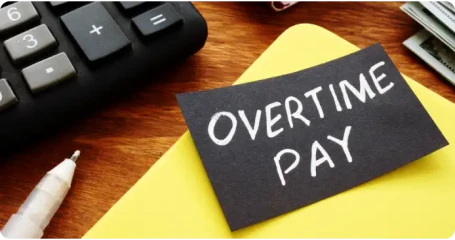Within the call centre industry, where conversations flow continuously, and customer service is fast-paced, employees and employers must comprehend the significance of employee rights. Call centre staff knowledgeable about their rights can work confidently and securely and clearly understand what they are entitled to. Employers who ensure their team is well-informed about these rights can establish a harmonious, legally compliant workplace that encourages trust and productivity.
This blog explains employees' essential rights under the Contract Call Centres Award (CCCA) to keep your call centre staff well-informed and secure. We will discuss wages, working hours, leave policies, and workplace conditions to provide you with the necessary information to understand the CCCA better.
What is the contract call centres award (ccca)
In the dynamic environment of call centres, the Contract Call Centres Award (CCCA) is essential for maintaining fair and equitable treatment of employees. This legally binding award outlines the minimum employment standards for employees in Australia's contract call centre industry.

- Definition and purpose: The MA000023 award, also known as the CCCA, sets out the rules and regulations for call centre employees. This includes minimum wages, working hours, overtime rates, leave entitlements, and other employment conditions. It applies to employees and employers in the contract call centre industry, covering customer service representatives, telemarketers, and technical support staff roles.
- Importance: Understanding the CCCA is essential for employers and employees in call centres. By avoiding legal consequences and creating a fair work environment, employers benefit from compliance with this award, increasing employee engagement, satisfaction, and productivity. On the other hand, employees can advocate for their rights and fair treatment by knowing the CCCA, promoting a harmonious and efficient workplace.
Essential employee rights under the ccca
The Contract Call Centres Award (CCCA) guarantees that employees working in call centres are treated fairly. Here are some of the primary rights that employees are entitled to under this award:

- Wages and classifications: The CCCA classifies employees as full-time, part-time employees, or casual employees, each with specific wage categories. It requires adherence to minimum wage laws and establishes different pay rates depending on these categories.
- Overtime and penalty rates: Overtime is when an employee works more than usual on weekends or public holidays. Penalty rates are then applied: 1.5 times the regular rate for the first three hours and double the rate for any additional hours on weekdays and Saturdays. The rates can increase to 2.5 times the regular rate on Sundays and public holidays.
- Hours of work: The standard working hours are 38 per week. While scheduling is flexible, any hours worked beyond this limit will be compensated at an overtime rate. When creating work schedules, it is essential to consider the needs of the employees while still adhering to the conditions of this modern award.
Leave entitlements and breaks
Leave entitlements are a vital part of employment agreements, guaranteeing that employees can take time off when needed for personal or professional reasons. Both employees and employers must be familiar with the specifics of annual leave, personal/carer’s leave, and parental leave.

- Annual leave: Full-time employees usually get four weeks yearly, which adds up over time. When requesting annual leave, employees must inform their employer, usually in writing, and specify the dates and length of their absence.
- Personal/carer’s leave: Under the CCCA, full-time employees are granted ten days of personal/carer's leave per year. This leave can be used for personal sickness or to care for close family members. Employees wishing to take sick leave may be required to present medical documentation to verify their condition.
- Parental leave: Parental leave entitlements include maternity and paternity leave, which enable new parents to care for their newborn or adopted child for up to 12 months. Job protection guarantees that employees can return to their previous position or an equivalent role after their leave.
- Meal and rest breaks: Staff can have rest breaks during their shifts to support their health and productivity. A 30-minute unpaid meal break is given after five hours of work. Employers must guarantee employees take their entitled breaks to adhere to legal requirements and sustain a healthy work environment.
Employment conditions and workplace rights
Knowing about employment conditions and workplace rights is essential for employers and employees. Here are some critical points to remember:

Fair work information
- Fair Work Information Statements: Fair Work Information Statements are essential for letting employees know about their rights and duties. Employers must provide this statement to every new employee, outlining their entitlements in the workplace, including pay, leave, and conditions under the Fair Work Act.
- Employee rights regarding union membership: Employees can decide on union membership. Joining a union can offer support and representation for work-related issues. Ensuring protection from discrimination related to union activities helps cultivate a harmonious work environment.
Anti-discrimination and harassment
- Policies on workplace discrimination and harassment: Employers must establish clear guidelines to prevent discrimination and harassment in the workplace. These policies must be shared with all employees and included in regular training sessions. This ensures that all employees have a safe and respectful work environment.
- Steps to take if an employee feels discriminated against: If an employee experiences discrimination or harassment, it is crucial to report the incident to a manager or HR representative immediately. Record all the details, including the incidents' dates, times, and specifics. Follow the company’s formal grievance procedure to address your complaint correctly. If the problem is unresolved internally, you can contact external bodies such as the Fair Work Commission or anti-discrimination boards for assistance.
How to resolve disputes according to ccca
Managing disagreements and complaints in the workplace is crucial for maintaining a harmonious and productive setting. Familiarising oneself with the procedures and resources available to resolve these matters can aid employees and employers in effectively dealing with concerns. Here is a brief overview of grievance procedures, external resources, and the role of the Fair Work Commission.

Grievance procedures
Internal processes:
- Initial discussion: Employees should discuss their grievances directly with their immediate supervisor or manager.
- Formal complaint: You can file a formal written complaint with the HR department if the issue is unresolved.
- Investigation: The HR department examines the complaint by interviewing those involved and reviewing relevant documents.
- Mediation: Internal mediation can be organised to help reach an agreement for everyone involved.
- Resolution: HR will deliver a formal response and, if necessary, implement corrective measures, following workplace laws.
External bodies and resources
- Fair Work Ombudsman: Offers workplace rights and obligations guidance and assists with disputes.
- Legal advisors: Employees and employers can seek legal advice for help with complicated problems.
- Industry associations: Can provide additional support and advocacy for members facing workplace disputes.
Role of the Fair Work Commission
- Dispute resolution services: The Fair Work Commission (FWC) offers conciliation and arbitration services to help settle workplace disagreements.
- Fair Work Act compliance: The FWC ensures that issues are resolved according to the rules of the Fair Work Act, which provides a legal structure for dealing with complaints.
- Binding decisions: When conflicts cannot be settled through agreement, the FWC is authorised to issue mandatory decisions.
- Support and resources: The Fair Work Commission provides materials and guides to help employees and employers prepare to resolve disputes.
Employees must understand their rights under the CCCA to maintain fair and respectful workplace conditions. Knowing these rights ensures that employees are adequately protected and compensated. We advise employees to review their contracts and seek additional information if necessary. Employers should prioritise compliance with the CCCA, fostering an environment of transparency and respect. Doing so contributes to a positive and equitable work culture that benefits employees and the organisation in the long term.



